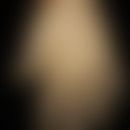Synonym(s)
DefinitionThis section has been translated automatically.
Ephedrae herba, also known as ephedra herb, is a drug that is used in herbal medicines for respiratory diseases, among other things. The plant's twigs are used.
Due to its centrally stimulating effect, Ephedrae herba is on the doping list of the International Olympic Committee (IOC) and the German Olympic Sports Confederation (DOSB)! No pharmacopoeia quality description- until 2001 the quality specifications for the drug "Ephedra herb" were in the German Pharmacopoeia, but were not adopted into the European Pharmacopoeia.
HMPC: not edited: Due to the content of strongly active alkaloids (ephedrine), ephedra herb cannot be classified as a traditional herbal medicinal product according to § 39a AMG.
ESCOP: not processed
Commission E monograph: until 1991: Respiratory diseases with mild bronchospasm in adults and schoolchildren.
IngredientsThis section has been translated automatically.
Ephedrae herba contains 1 to 2 % alkaloids with the main alkaloid L-ephedrine. It also contains D-pseudoephedrine and L-methylephedrine.
You might also be interested in
EffectsThis section has been translated automatically.
Ephedrae herba centrally stimulating, indirectly sympathomimetic, antitussive (proven in animal experiments) and furthermore directly alpha- and beta-adrenergic.
Field of application/useThis section has been translated automatically.
Ephedrae herba was monogrpahized by Commission E until 1991, is used for respiratory disorders with mild bronchospasm, nasal congestion in hay fever, allergic rhinitis, rhinitis, sinusitis, urticaria, bladder weakness, narcolepsy, myasthenia gravis and postural hypotension.
No longer in use today, see under sea ragweed.
DosageThis section has been translated automatically.
No longer recommended.
Formerly: The single dose in adults is between 15 and 30 mg total alkaloids calculated as ephedrine. For children, the dosage is 0.5 mg total alkaloids /kg body weight. The maximum daily dose for adults is 300 mg total alkaloids, for children corresponding to 2 mg total alkaloids/kg body weight.
Due to the risk of tachyphylaxis and habituation, preparations with ephedra herb should be used only for a short time and a few days.
Undesirable effectsThis section has been translated automatically.
It can lead to motor restlessness, insomnia, irritability, headaches and micturition problems. In addition, nausea, vomiting, tachycardia, a sharp rise in blood pressure in higher doses, cardiac dysrhythmia and dependence can occur.
ContraindicationThis section has been translated automatically.
In case of anxiety and restlessness, arterial hypertension, cerebral circulatory disorders, narrow-angle granuloma, prostate adenoma with residual urine formation, paeochromocytoma or tyreotoxicosis, application should be avoided.
InteractionsThis section has been translated automatically.
If heart glycosides or halothane are taken at the same time, cardiac arrhythmia can occur; in combination with guanethidine, the sympathomimetic effect can be enhanced. When combined with MAO inhibitors, the sympathomimetic effect of ephedrine can be potentiated, when combined with Secale alkaloid derivatives or oxytocin, a development towards high blood pressure is possible.
Note(s)This section has been translated automatically.
Due to their central stimulating effect, drugs containing ephedrine are on the doping list of the IOC and the German Sports Federation.
LiteratureThis section has been translated automatically.
- Schilcher H (ed.) in, Leitfaden Phytotherapie, Urban & Fischer Verlag (2016) Munich, p. 221 ff.
- https://arzneipflanzenlexikon.info/meertraeubel.php






